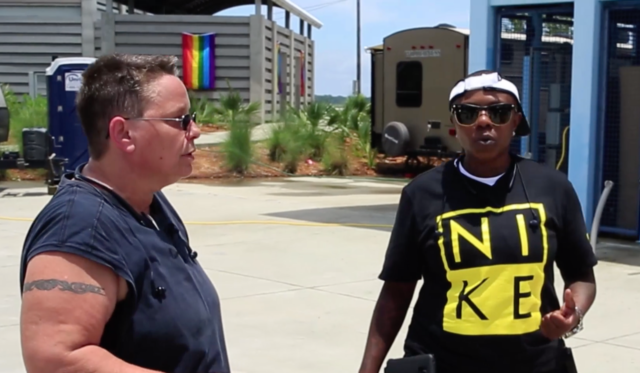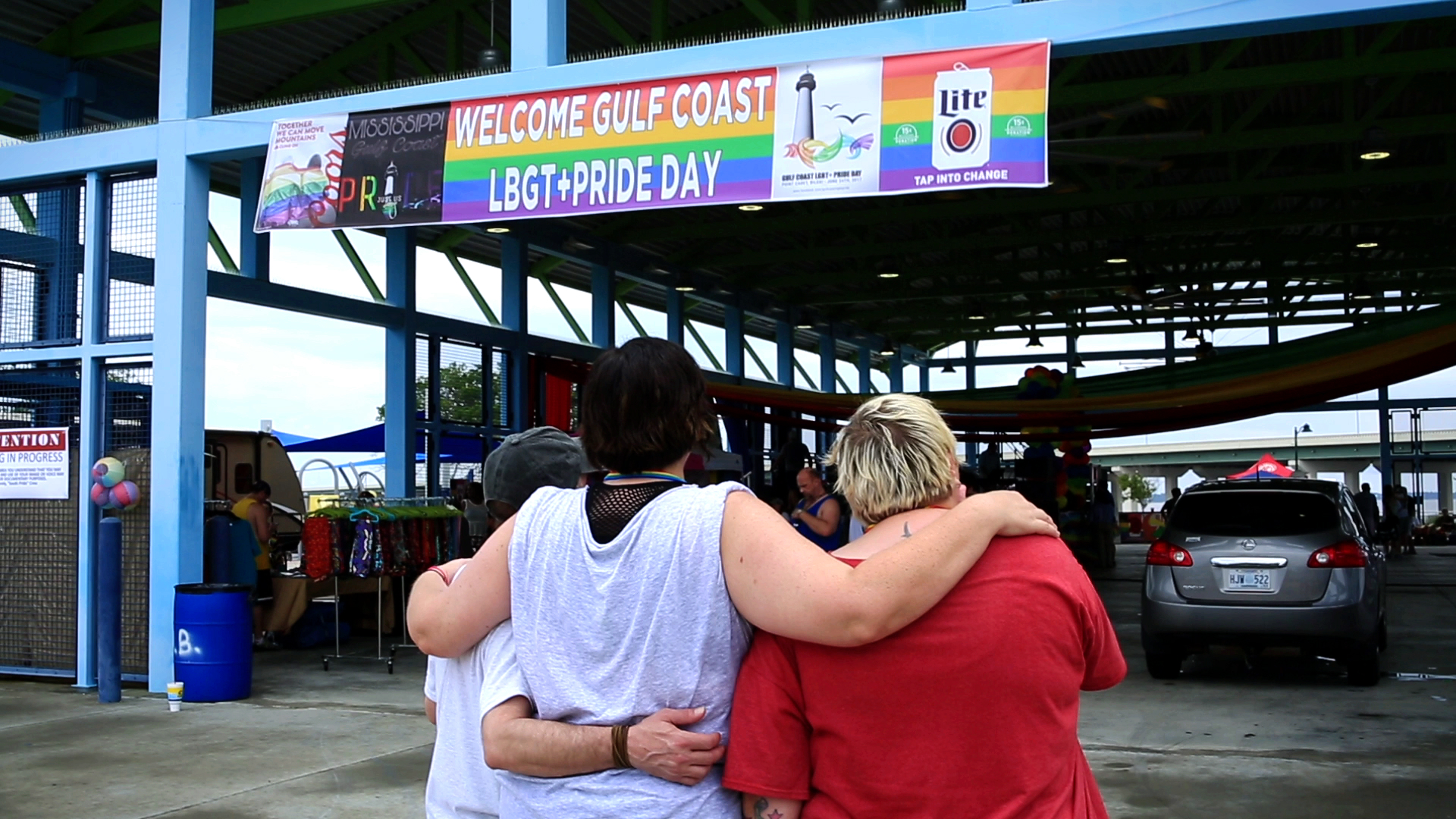Malcolm Ingram is the mentee of filmmaker Kevin Smith (“Dogma,” “Chasing Amy”), who financed Ingram’s first film “Drawing Flies.” Since then, Ingram has become well-known in the festival circuit, garnering awards like a nomination for the Grand Jury Prize at the 2006 Sundance Film Festival and the HBO award for Best Documentary at the Miami LGBT Film Festival for his documentary “Small Town Gay Bar.” The film explored gay bars in rural Mississippi, a theme that the director revisits in his most recent documentary “Southern Pride.”
“Southern Pride” sees Ingram returning to the gay bars of rural Mississippi to examine life in the Deep South’s Bible Belt after the election of Donald Trump, specifically in the cities of Biloxi and Hattiesburg. In Biloxi, Lynn Koval is the white owner of Just Us Lounge, the oldest gay bar in the state, and Shawn Perryon, Sr., the Black owner of LGBTQ space KlubXclusive. Separately, the two each decide to hold their cities’ first Pride celebrations in 2017 as a way to fight back against the sudden emboldenment of anti-LGBTQ rhetoric in the South.
“Southern Pride is the story of strong, queer women and their allies who answered the call to make their community better, in a time when the world is being torn apart,” Ingram noted in a press release. “It examines the complications surrounding race, sexuality, gender politics and advocacy in America today. The nine months I spent embedded in these communities were some of the most enriching times I’ve had in my life so far, and in the end, I am incredibly proud I had the privilege to tell the incredible tale of these kick ass women of action.”

The film opens on an extremely powerful scene of Koval, a visibly queer woman, watching Donald Trump’s inauguration at the bar of Just Us Lounge. Although just the opening scene, this is one of the weightiest moments of the whole film. It calls back to a moment in time that so many queer people, unfortunately, have engrained in their minds. It reminded me of watching the 2016 Presidential election ballots be counted while hanging out with my queer friends in the neighborhood bar, the majority of us bursting into sobs when the final result was announced. It’s a powerful moment, and the viewer is told, right from the beginning, that this is not necessarily a joyful film. It’s not necessarily a film about the good in being queer in the South; rather, it’s a documentary about the exact opposite. While big cities are gearing up to celebrate Pride in their usual over-the-top manner, queer communities in the Deep South are being forced to continue their day-to-day lives and keep their identities to themselves because of the boldness that Trump’s election instilled in so many people. This scene alone holds the key to the entire film, and it draws you in in a split second.
While the documentary is collective a story about communities and Pride in small, Southern towns, it’s quick scenes like this that manage to get the most across about life in the Deep South as a queer person. One that struck me immediately and continues to stay with me is a moment where, after Koval has made the decision to begin planning a Pride celebration, a meeting is held at Just Us Lounge for any members of the community who wish to share their opinions. While discussing what to call the event, Koval is adamant that the title include the word “gay,” for obvious reasons. However, another member of the community begins to argue about the use of the word in the title. Despite the Pride celebration being meant as an event for queer Mississipians to be out and proud, this moment shows how deep-seated the fear of simply being identified as queer is in this community. It’s a powerful moment wrapped up in an innocuous argument, but the split second alone gives viewers an immense amount of insight into what it’s like to be a queer person living in a place that doesn’t accept you.
Of course, while the documentary does a stellar job of highlighting Pride, a strong sense of community, and the hardships that rural queers still face, there are a few issues with the overall production. There’s a section in the middle about Hurrican Katrina and its effect on Biloxi and Hattiesburg, as well as greater Mississippi. While this section does a good job to show the issues of the area and how the community functions when it comes together, it feels almost unnecessary to the forward movement of the film. In a similar vein, Ingram seems to truly enjoy using the weather as a way to move the story along, but it sometimes feels unnecessary or unconnected to the story. It left me seeking a sense of interconnectedness between a number of scenes in the documentary; I wish it was referenced less.

Overall, “Southern Pride” does a phenomenal job of accomplishing its mission of telling the stories of strong queer women who are trying to impact their communities for the better. It also invites in a fantastic discussion of intersectionality in regards to Blackness and queerness. While the film is angled toward what it means to be LGBTQ in the rural South, it does not skip over the discussion of race. Instead, it runs at it with full speed, setting time aside to fully discuss what it’s like to be Black in the Bible Belt before speaking about what it means to be a Black queer person. Each identity is discussed and portrayed fully before being tied together, introducing a fascinating dichotomy between race and Pride in the Deep South.
This is a can’t-miss documentary for queers in major cities. We could all use a reminder, especially during Pride month, that not everyone is welcome to be themselves. That not everyone has the opportunity to be out and proud one day a year, let alone every day. This Pride month, we have to remember our queer communities around the country (and the world!) and take the time to hear their stories.


What Do You Think?